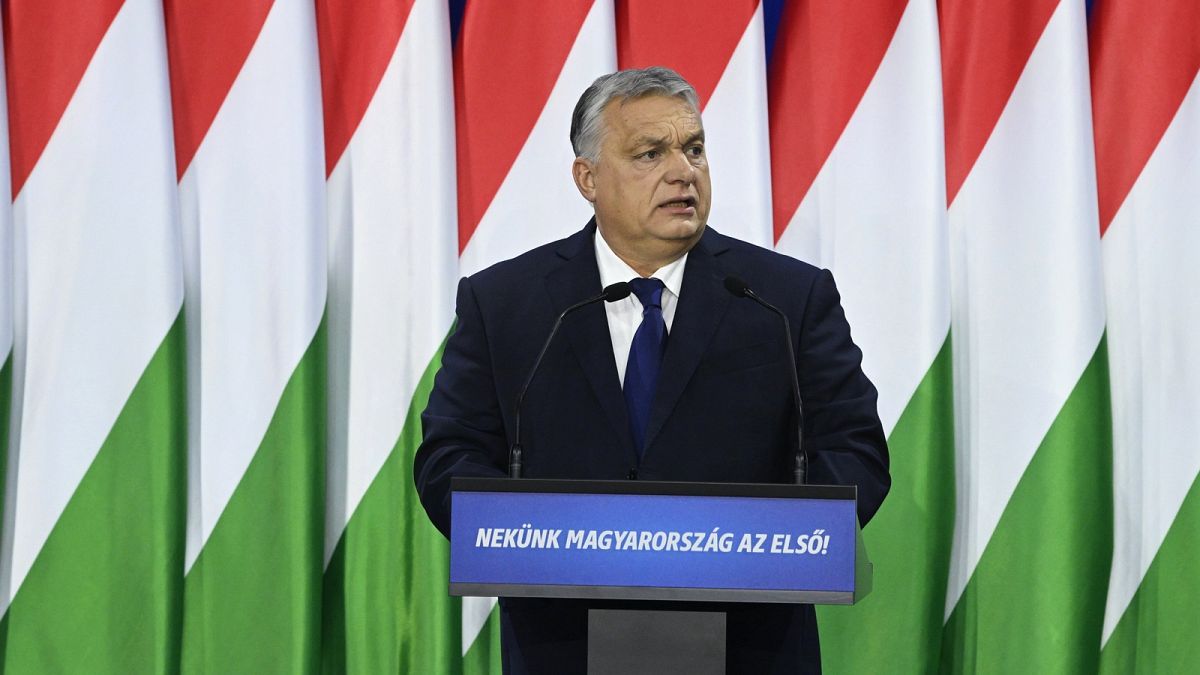Der Spiegel, Le Monde and RAI are among the outlets blacklisted by Russia.
Hungary once again waged its veto to derail the European Union’s foreign policy on Wednesday by blocking the release of a joint statement denouncing the Kremlin’s recent decision to ban 81 European media outlets in Russia.
The outlets targeted by Moscow include well-known brands in Europe, such as Austria’s ORF, Germany’s Der Spiegel, Ireland’s RTE, Spain’s El País and El Mundo, Italy’s RAI, Portugal’s Público, France’s Le Monde and AFP, and Finland’s YLE.
The list includes one Hungarian site, the 444 news portal, which is independent.
All of them have been banned from broadcasting and online spaces in Russia.
Moscow says the restrictions would be lifted if the bloc annuls the sanctions placed last month on RIA Novosti, Izvestia and Rossiyskaya Gazeta, which are widely considered to be spreaders of pro-war propaganda. The sanctions also affected Voice of Europe, the Dutch-based site that has become involved in the so-called Russiagate.
Brussels wanted to react to Russia’s tit-for-tat with a critical statement endorsed by all 27 member states, as unanimity is required in foreign policy. But Hungary moved to block the collective rebuke, forcing Josep Borrell, the EU’s foreign policy chief, to release a statement on his own.
Borrell said the “totally unfounded” ban “further restricts access to free and independent information and expands the already severe media censorship in Russia,” and made it clear the sanctions on Russian outlets would remain in place.
“The Russian disinformation and propaganda outlets, against which the EU has introduced restrictive measures, do not represent a free and independent media,” he wrote. “Their broadcasting activities in the EU have been suspended because these outlets are under the control of the Russian authorities and they are instrumental in supporting the war of aggression against Ukraine.”
The latest twist adds to a long list of Hungary’s vetoes, a perennial source of exasperation among diplomats in Brussels. Despite repeated pleas, Budapest is still obstructing €6.6 billion in military support for Ukraine.
Earlier this year, Orbán broke ranks with his EU peers when he congratulated Vladimir Putin on “his re-election,” which other member states had refused to acknowledge.
The timing of the move also raised eyebrows: Hungary will take over the rotating presidency of the Council of the EU on 1 July, a privileged position that will enable the country to set the political agenda and moderate discussions between member states.

